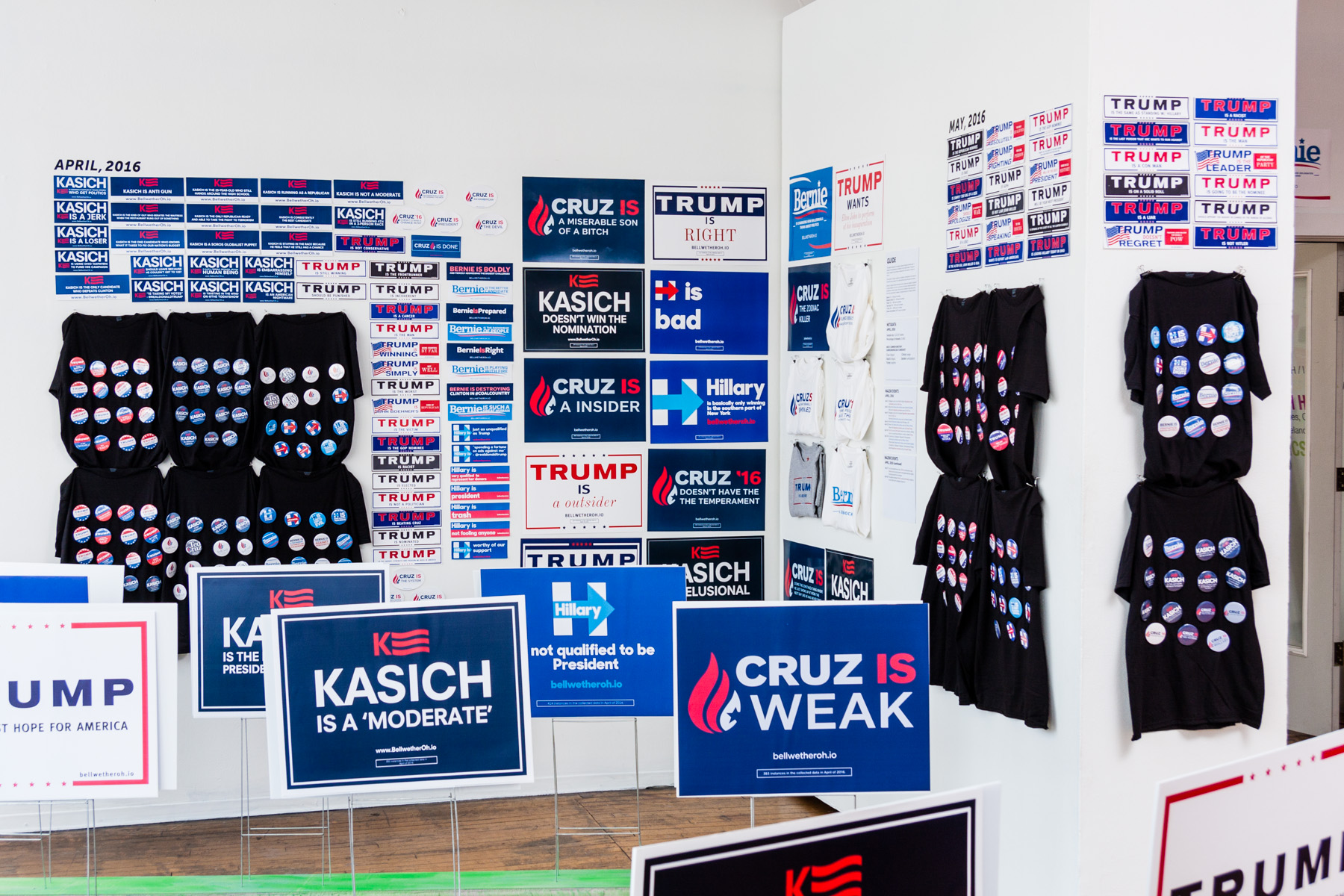What are the ethics of public participatory art?
I recently read the book Uncanny Valley by Anna Wiener, which talks about tech company culture in San Francisco in the early 2000s. She describes her time working at the company Mixpanel, which does data collection and analytics. To me, her most insightful description of that time is the discussion of ‘God mode’, where employees of the then private company could have near unlimited and unrestricted access to the analytics of any of their customers. She enumerates the many possible ways that this power could be abused by employees, and the laissez faire attitude that coworkers took towards that privileged access.
Last week as part of our ‘Conversations in New York Class’ we had the media artist Roopa Vasudevan come to talk to our cohort about a selection of her works. One of them #Bellwether, compiled Twitter data to conduct sentiment analysis and eventually produce a series of faux campaign posters plastered with social media praise and vitrol. The effect was quite striking to me, to see a room full of campaign buttons, yard signs, and flyers that look legitimate on first glace, but reveal individual sentiments on closer inspection.

A photo from the exhibit. Sourced from the artists site
However, Roopa is also deeply passionate about data collection awareness, and staunchly advocates for the reigning in of big techs seemingly endless ways of collecting, aggregating, and selling individuals data. To me it seemed hypocritical that she would be an active agent in the same sort of data collection, and use that data to further her own career to perhaps gain money and notoriety.
As someone who has worked with journalists and researchers before - it has long struck me that their data collection practices can easily stray into unethical territory. In my professional job as a software engineer at Figma, we have strict policies, trainings, and detection systems around accessing user data. Mistakes around user data can open the company up to expensive litigation, and are taken extremely seriously. We have the time and resources to invest in tools to keep user data secure, and although not always perfect, to keep it from beoing used in ways that users don’t intend.
Journalists and researchers on the other hand, are much more likely to be spread thin. User data sitting unprotected on public GitHub repositories, browsed freeely in cafes, and collected sometimes without consent or any recourse for the invidual to view, alter, or delete it. Often this is not nefarious, but stems from a lack of knowledge of proper data collection techniques, encryption, or time to invest in the goal.
But this is why, when I asked Roopa if she thought she had acted in a way opposed to her moral beliefs, she readily admitted that she wasn’t. She said that she would not do the same art piece now, and that it is because she has developed a more principled position since making that art. I thought her response took a lot of reflection, growth, and courage to admit, and I strive to be as pricipled in my own work.